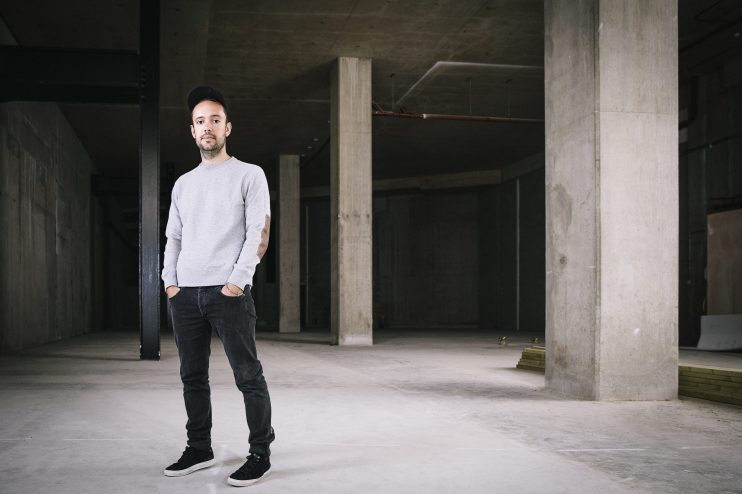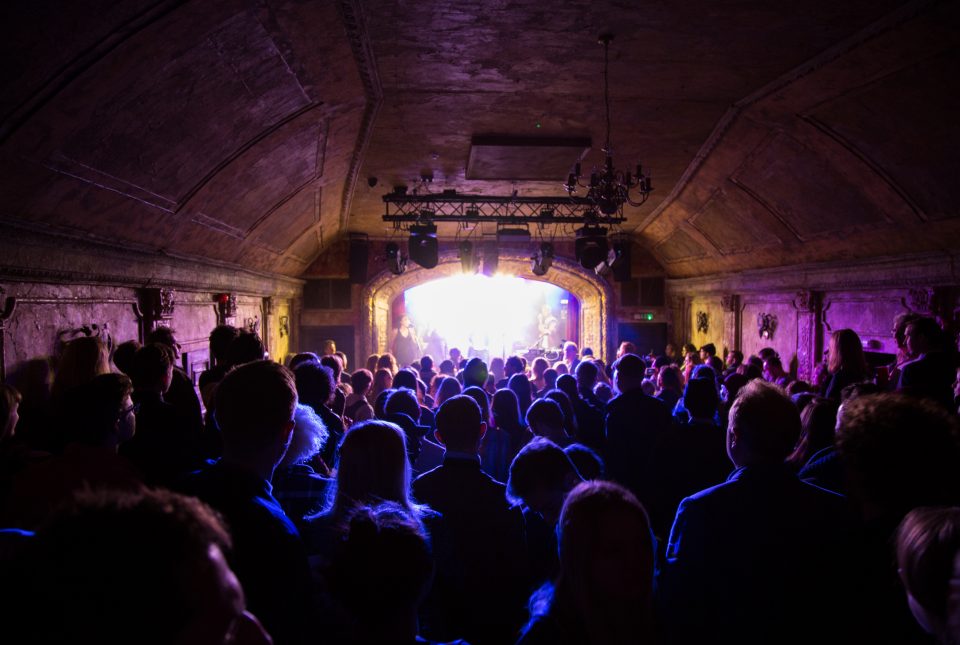Rock the joint: Why Mumford & Sons’ Ben Lovett is building new music venues around the world

Near King’s Cross station, a new social hub is currently under construction. Due to open in March, the space — called Goods Way — will contain a food court, bar and a 600-capacity venue known as Lafayette.
Goods Way is the brainchild of Ben Lovett, the chief executive of Venue Group, who sounds excited but nervous as we speak just a few weeks ahead of the opening.
“The stakes are high, as they should be,” he tells me. “It’s being built from scratch, and we’re commissioning equipment. We’ve also hired nearly 100 new staff, and getting them all inducted, trained, and creating a culture unique to what Venue Group does is a lot to tackle.”
Readers may recognise Lovett as a member of the award-winning folk rock band Mumford & Sons. The group formed in 2007 and has released four albums, and is perhaps best known for the 2009 single “Little Lion Man”. But alongside this busy musical career, the 33 year old is a prolific entrepreneur.
“I started a company 14 years ago called Communion when I was 19 years old,” he says. “It is an independent concert promoter, record label and publishing company. I was working on various projects with artist development and career growth this whole time alongside being in the band.”
Lovett then set up Venue Group in 2016, and the company’s first venture was Omeara, a 325-capacity music hall and club space near London Bridge. The drive behind this business was partly so he could create an ideal performance space based on his years of touring, but also from the realisation that the number of independent, grassroot venues in the UK is falling.
“There’s been a lot of effort going into understanding the various pitfalls and challenges of our industry. One of those areas that kept on coming up was a rising tide around the island of venues — they were becoming more and more scarce,” explains Lovett.

Despite the efforts of campaigners and politicians like Sajid Javid, who committed to strengthening planning rules to protect grassroots concert spaces when he was housing secretary in 2018, one music venue closes every month, according to Insure4Music. In fact, 20 per cent of the UK’s small venues have closed in the last 15 years.
“Venue closures have become a mainstream issue,” recalls Lovett. “But prior to that I was thinking that there was a responsibility to transfer what I’d learned and the skills I had, but also to reinvest some of the money I’d made from the music industry back into it, in order to support the next generation of grassroots talent.”
He adds that Venue Group is trying to show this next generation that a career in the industry is viable.
“We’ve done a lot of work with artists with Omeara over the years, but also with individuals looking to get into bands, music production, and touring through partnerships with educational programmes like the London College of Creative Media and working with their students, to show them that there’s a great platform and to prove to people that its worth following through on their dreams.”
Lovett is passionate about the importance of music venues, saying that they’re more than just a functional space for bands to perform.
“If it was just a case of building a black box, there’d be lots of them, but doing it in a way that feels inspirational, both to fans and to artists, to walk out on a stage in a room that complements the effort and ingenuity that has gone into their craft — that’s a challenge,” he says.
So how has his experience impacted the design of Omeara and Lafayette?
“I think as Mumford & Sons, we’ve performed in over a thousand venues around the world,” he says. “I have a bit of a photographic memory, so I’ve taken snapshots around the world of things that I’ve loved. Omeara was the first reflection of that. Lafayette and Goods Way are the latest reflection of where I would want to play.”
Looking ahead, Venue Group plans to expand internationally and launch independent venues around the world. The next venture will be in Huntsville, a city in Alabama.
“We’re now working with the city to build an 8,000-seat amphitheatre,” explains Lovett. “It’s very exciting. There are challenges to running an organisation in multiple countries, but I jump back and forth between the UK and US monthly. The advantage is maintaining cross learning. There’s a lot of stuff that folk in America are doing that we can learn from, and vice versa.”
But do these plans distract Lovett from his music career? Not at all. In fact, he says that his bandmates are very supportive.
“The thing about Mumford & Sons is we’re old, old friends. Lead singer Marcus and I go back 25 years now, and we’ve been making music together since we were 12,” he says. “They’re very encouraging of all the Venue Group and Communion endeavours, which helps a lot. It makes it all a lot easier, because it could go either way.”
Lovett reveals that the band are still writing and working on projects, including a film about their journey to Senegal to visit the musician Baaba Maal in his hometown, which they hope to finish in the next few months.
What I find remarkable about Lovett is how he’s managed to balance his thriving music career with his entrepreneurial achievements. But Lovett counters by pointing to artists like the US rapper Jay-Z, who has built a business alongside his creative endeavours.
“I see it all as creating,” he explains. “Whether it’s building platforms or physical spaces, or creating songs or tours, it all comes from a similar place. I think for some people it’ll be strange, but for me I know a ton of entrepreneurial musicians, and in that sense I’m just one of many.”
Sign up to City A.M.’s Midday Update newsletter, delivered to your inbox every lunchtime
Main image credit: Venue Group